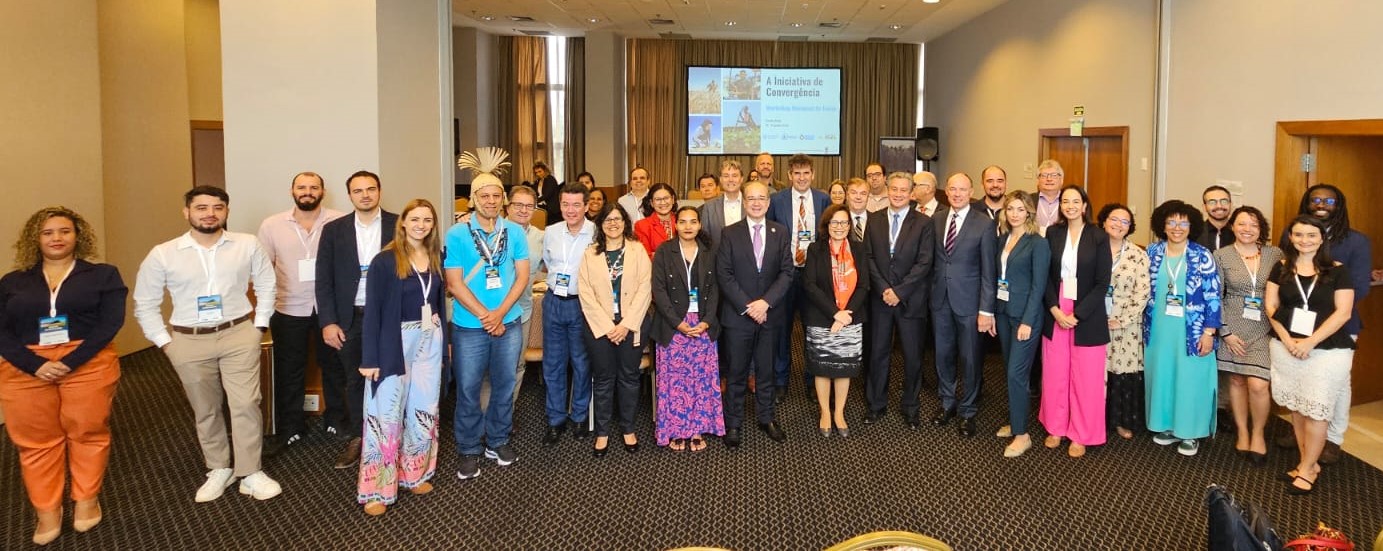SEED FUNDING JOINT PROGRAMMES
Egypt
Strengthening Sustainable and Resilient Food and Nutrition Systems in Egypt for SDG Acceleration




PROJECT TITLE | Strengthening Sustainable and Resilient Food and Nutrition Systems in Egypt for SDG Acceleration |
| Context | Egypt engaged actively in the 2021 Food Systems Summit process, convening a national dialogue and developing national pathways with recommended interventions for improving food security and nutrition by 2030. To enhance multi-sectorial coordination and spearhead the transformation process, the Government created a National Committee for Food and Nutrition Systems chaired by the Prime Minister and bringing together several ministries to coordinate joint actions. Strengthening coordination mechanisms, fostering multi-stakeholder partnerships, consolidating accountability structures, focusing on the availability of evidence, analysis, and data, are identified as key priorities to strengthen the food systems governance structure in Egypt. |
| PUNOs | WFP, FAO, UNICEF |
| Contribution to SDGs | SDG 2 Zero Hunger, SDG 3 Good Health and Well-being, 12 Responsible Consumption and Production. |
| Contribution to other SDG transitions | Climate, biodiversity, pollution |
| Duration | June 2024 – May 2025 |
| Expected financial leverage | $87,000 (PUNO co-financing) |
| Alignment with SG Call to Action | Policy integration; Food systems governance; Research, data, technology and innovation; Inclusive and participatory design; Private sector engagement |
| Outcomes | The JP contributes to strengthening policy and governance frameworks for food systems transformation and generating evidence and analysis on key dimensions of food systems to inform decision-making, supporting the work of the National Committee for Food and Nutrition Systems. The JP complements the government’s flagship program “Country Platform for the Nexus of Water, Food and Energy”, which provides a mechanism to mobilize climate finance and private investments. |
| Partners |
|
| Outputs |
|
Workshop in Brasilia addresses food systems and climate change

©WFP/Ana Mascarenhas
Brasília, Brazil – As climate change intensifies, rethinking how food is produced and consumed is essential. Addressing this, Brasília hosted a National Inception Workshop from October 29 to 31 to pilot the Convergence Initiative – an effort led by the UN Food Systems Coordination Hub to align food systems transformation with climate action.
This initiative builds on commitments made at COP28, held in 2023 in the United Arab Emirates, where countries pledged to advance sustainable agriculture, resilient food systems, and climate action. It also responds to the UN Secretary-General’s Call to Action from the UN Food Systems Summit +2 Stocktaking Moment (UNFSS+2).
Ambassador Maria Laura da Rocha, Secretary General of the Brazilian Ministry of Foreign Affairs, described the workshop as an invaluable opportunity to advance Brazil’s climate policies. She highlighted Brazil’s National Climate Action Plan, which unites government sectors to address sustainable finance, bioeconomy, food systems, circular economy, and technology. “We hope this exchange will drive critical progress toward COP30,” she stated in her opening remarks.
Supported by the Government of the Netherlands, the Convergence Initiative assists countries in aligning food systems transformation with climate action, accelerating progress toward the Sustainable Development Goals (SDGs) and the Paris Agreement.
Organized by Brazil’s Ministry of Foreign Affairs and the UN Food Systems Coordination Hub, with support from the WFP Centre of Excellence in Brazil and FAO, the workshop gathered representatives from the Brazilian government, civil society, academia, research institutes, and UN agencies. Participants shared policies aimed at transforming food systems and addressing climate challenges in Brazil, while reviewing Brazil’s national and international commitments in these areas.
In his opening remarks, André Driessen, Ambassador of the Netherlands to Brazil, reiterated the Netherlands’ commitment to support Brazil’s food systems transformation through knowledge sharing and active collaboration. Stefanos Fotiou, Director of the UN Food Systems Coordination Hub, presented Brazil’s updated national food systems pathway with a central focus on the right to food. Jorge Meza, FAO’s representative in Brazil, underscored the Convergence Initiative’s critical role in eradicating hunger and ensuring food and nutrition security, stating, “We are steadily losing agrobiodiversity due to our food systems’ current structure.”
Daniel Balaban, Director of the WFP Centre of Excellence against Hunger in Brazil, stressed the urgency of action: “We are at a crucial moment in 2024 to transform the world. There has never been so much global unity in transforming food systems, and Brazil is taking a leading role in this change. Now is the time to turn commitments into action. Countries must direct resources toward saving lives. The Brazilian government is fully committed to eradicating hunger, and we are here to support them.”
Arnoud Hameleers, representing IFAD, emphasized Brazil’s vital role within global food systems, noting, “Many factors that influence sustainable food systems extend beyond borders, making resilience a shared challenge.” He pointed out the importance of strategic decisions in shaping Brazil’s path in the Convergence Initiative. “Scenario building allows us to understand the system and find synergies, especially for rural communities, which often bear the heaviest burden.”
Following in-depth discussions, participants crafted recommendations to guide future actions for integrating food systems and climate agendas. The workshop laid a solid foundation for Brazil’s leadership in this initiative, setting a powerful example for lasting change both within its borders and beyond.
